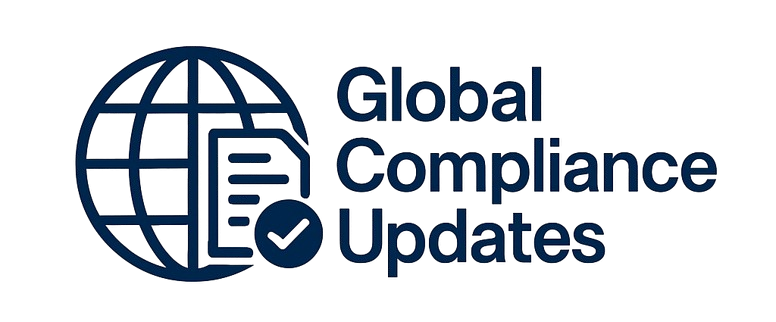This Bank Secrecy Act training will explain how to train your frontline staff to ask BSA questions. It will cover Currency Transaction Report (CTR), Monetary Instrument Log (MIL) and Suspicious Activity Report (SAR) scenarios and questions and much more.
WHY SHOULD YOU ATTEND?
Because the frontline of any financial institution is the first line of defense, it stands to reason that ill-trained frontline staff will, in essence, be the collapse of your institution. A strong and well educated frontline staff will help develop a strong back office BSA department for your financial institution. Often times, the frontline doesn’t know why they are asking the questions or what the point of BSA truly is.
This webinar will not only give them viable scenarios and how to respond but will also explain why they are asking the questions in the first place. Another valuable section of this webinar will be teaching the frontline when questions need to be asked. Most are familiar with when they should question CTR and MIL related transactions, but being able to look at a customer’s account history can also teach them how to ask for possible SAR situations.
AREA COVERED
- Responsibility of the front line
- Customer service vs bank preservation
- Updating customer information
- CTR scenarios and questions
LEARNING OBJECTIVES
- MIL scenarios and questions
- SAR scenarios and questions
- Why should I care (a frontline perspective)
- Building a stronger relationship between frontline and back office
WHO WILL BENEFIT?
- District Bank/Credit Union/Financial Institution Managers
- Branch Managers
- Teller Supervisors
- Compliance Managers
- Front Line Staff
- Risk Officers
- Operational Managers
Because the frontline of any financial institution is the first line of defense, it stands to reason that ill-trained frontline staff will, in essence, be the collapse of your institution. A strong and well educated frontline staff will help develop a strong back office BSA department for your financial institution. Often times, the frontline doesn’t know why they are asking the questions or what the point of BSA truly is.
This webinar will not only give them viable scenarios and how to respond but will also explain why they are asking the questions in the first place. Another valuable section of this webinar will be teaching the frontline when questions need to be asked. Most are familiar with when they should question CTR and MIL related transactions, but being able to look at a customer’s account history can also teach them how to ask for possible SAR situations.
- Responsibility of the front line
- Customer service vs bank preservation
- Updating customer information
- CTR scenarios and questions
- MIL scenarios and questions
- SAR scenarios and questions
- Why should I care (a frontline perspective)
- Building a stronger relationship between frontline and back office
- District Bank/Credit Union/Financial Institution Managers
- Branch Managers
- Teller Supervisors
- Compliance Managers
- Front Line Staff
- Risk Officers
- Operational Managers
Speaker Profile
 Thomas Nollner
Thomas Nollner
Thomas E Nollner has more than 35 years of experience in financial institution supervision and consulting. Mr. Nollner spent 30 years as a National Bank Examiner for the Comptroller of the Currency where he was a safety and soundness examiner and a compliance examiner. As a safety and soundness examiner he examined national banks for capital adequacy, asset quality, management issues, earnings concerns, and liquidity funding. As a compliance examiner, he examined national banks for compliance with consumer laws and regulations such as the Truth-in-Lending Act, the Real Estate Settlement Procedures Act, the Flood Disaster Protection Act, the Community Reinvestment …
Upcoming Webinars


Effective Communication: Ensuring Clarity, Accountability a…

2-Hour Virtual Seminar on Workplace Investigations 101: How…

Employers Should Prepare for Immigration Raids in 2026! Thi…

AI for Excel Professionals: Enhancing Productivity with Cha…

The Importance of the first 5 seconds when presenting

Negotiating Skills For Professional Results - Winning Strat…

Workplace Behavior in 2026: Tackling Conflicts and Incivili…

FDA Recommendations for Artificial Intelligence/Machine Lea…

Validation Statistics for Non-Statisticians

Bootcamp for New Managers and Supervisors: Develop These Es…


Interactive dashboards & analytics in Excel


Enhancing Project Management with Storytelling Techniques

4-Hour Workshop on Data Simplified: Sorting and Filtering, …

Creating Your 2026 Marketing Strategy

The Language of Leadership: Is Your Communication Style As …

ChatGPT for Innovative Business Advisory Services for Accou…


Utilizing A Proven Process When Conducting Sensitive, Inter…

How to Write Procedures to Avoid Human Errors

Human Factors Usability Studies Following ISO 62366 and FDA…

Why EBITDA Doesn't Spell Cash Flow and What Does?

Mastering DAX Patterns in the Era of AI & Copilot

Establishing Appropriate Quality Metrics and Key Performanc…


IRS Form 1099 Reporting: Compliance Requirements

FDA QMSR Explained: How the QMSR Replaces the QSR

How to Manage the Legal Landmine of the FMLA, ADA and Worke…

Understanding EBITDA – Definition, Formula & Calculation

Tattoos, hijabs, piercings, and pink hair: The challenges …

FDA Compliance And Laboratory Computer System Validation

Medical Device Hazard analysis following ISO 14971




Excel Spreadsheets; Develop and Validate for 21 CFR Part 11…

Excel + AI: The Smart User's Guide to Faster, Easier Work w…
